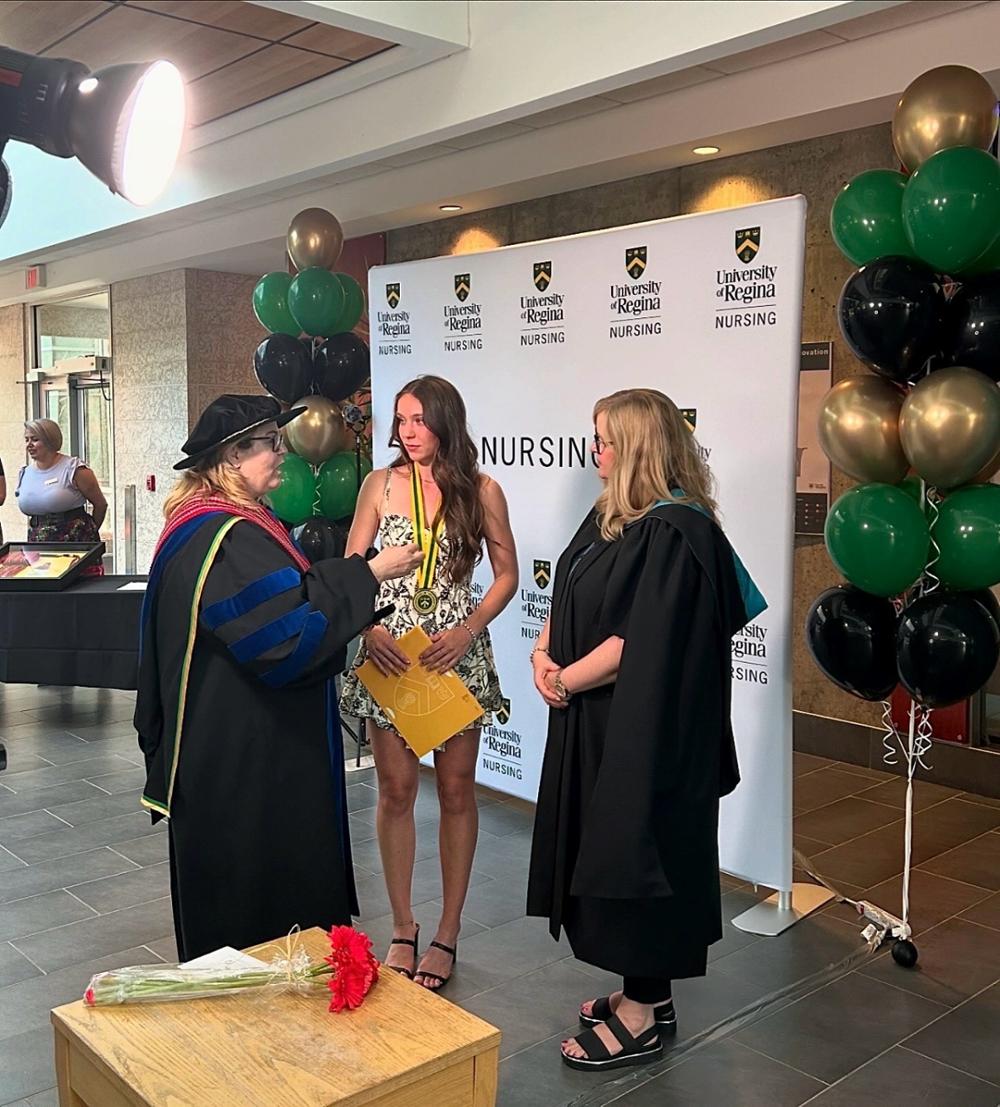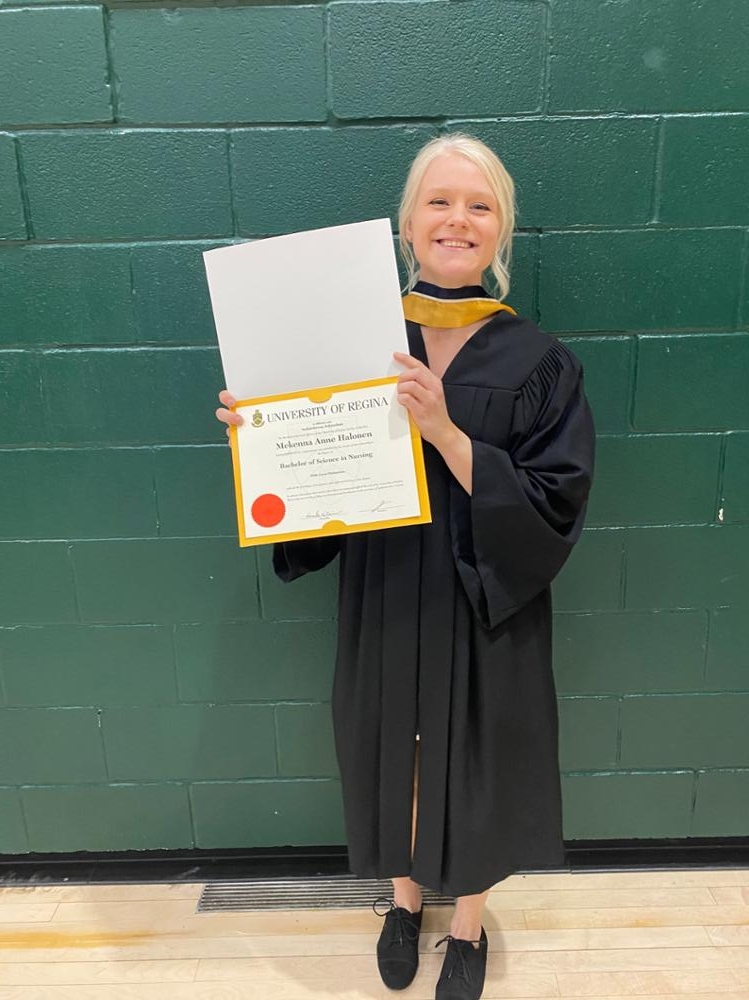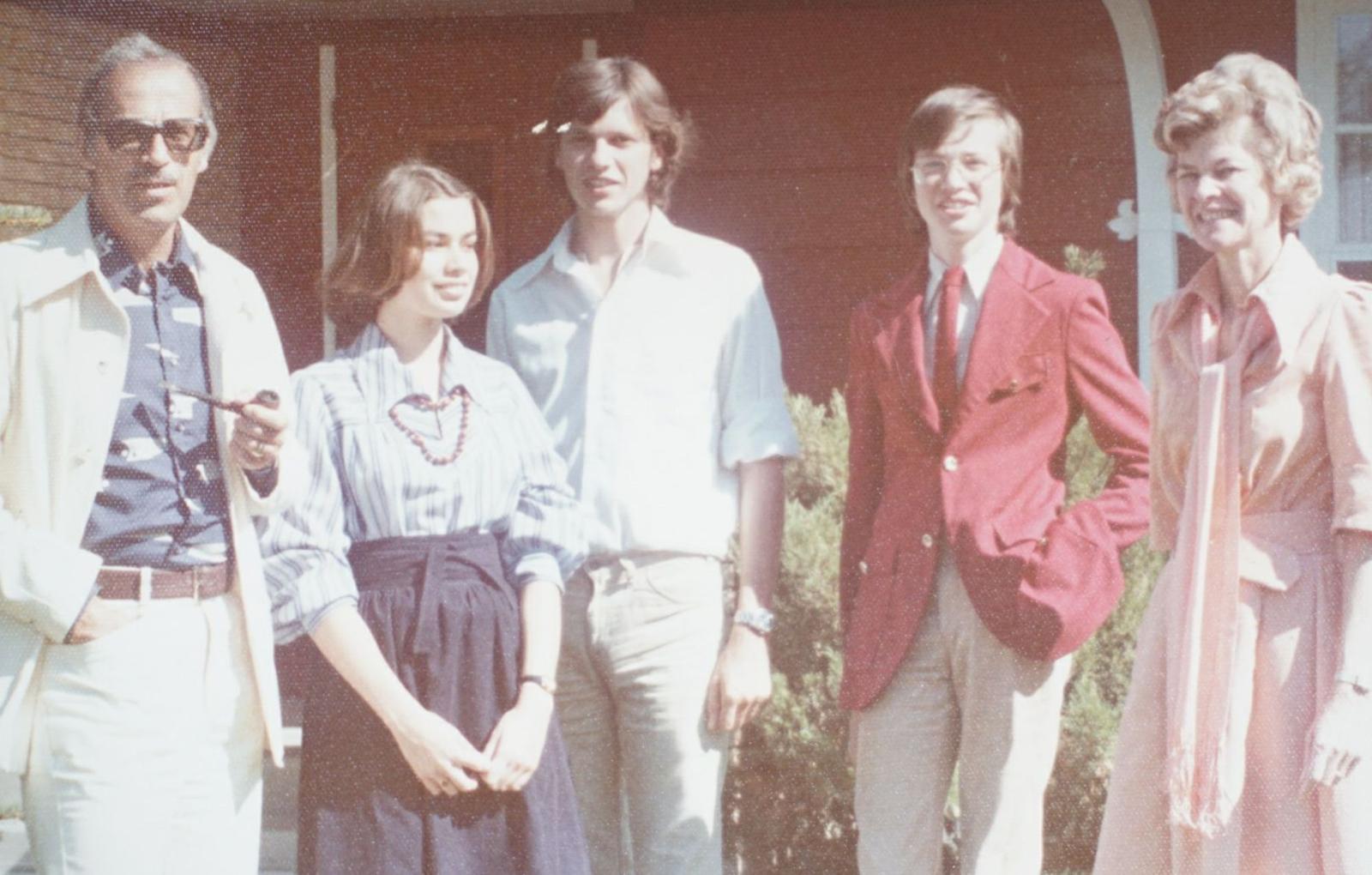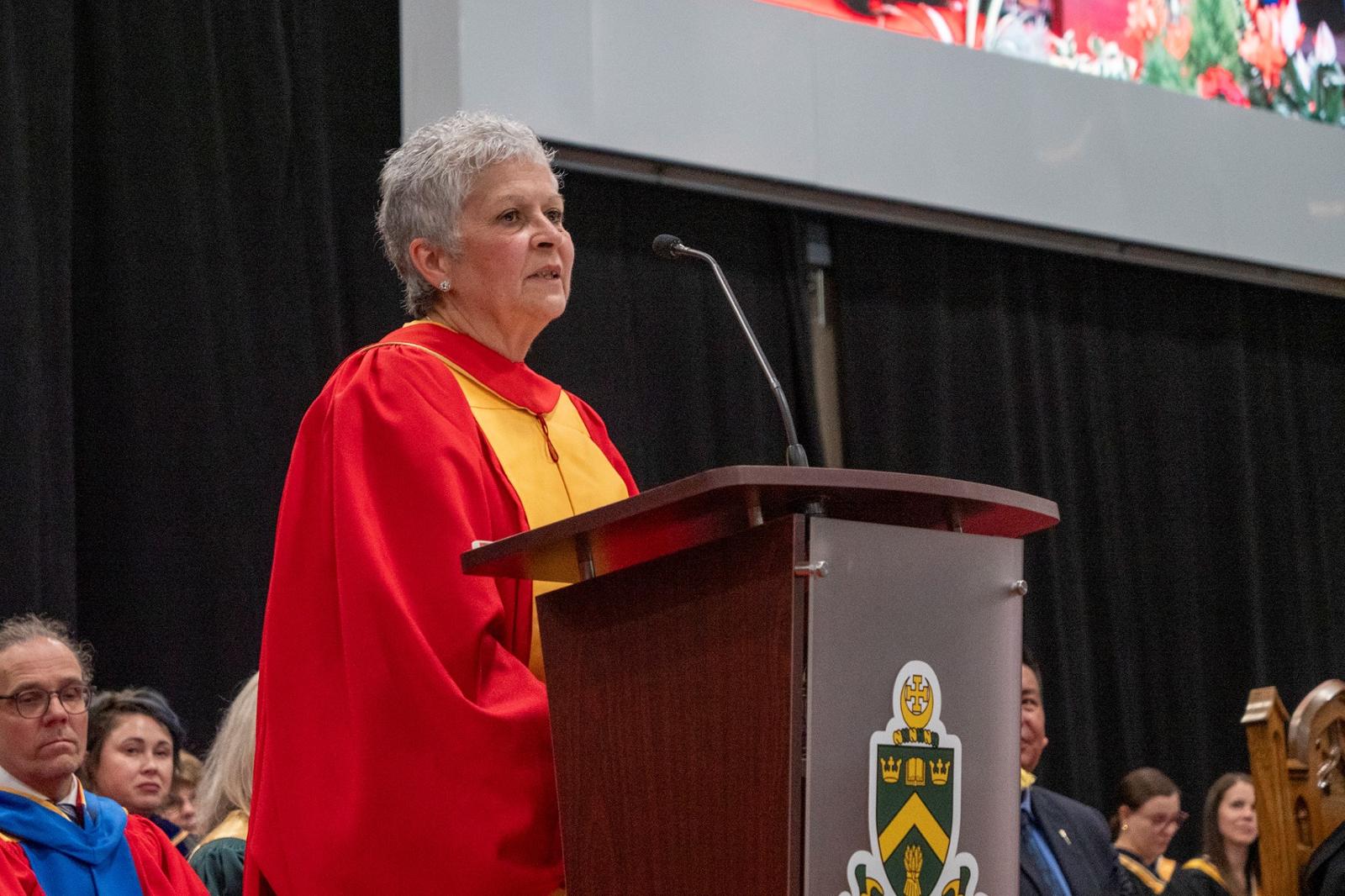At the University of Regina’s Spring 2024 Convocation, the Faculty of Nursing saw its largest graduating class in history with 252 students graduating from the Saskatchewan Collaborative Bachelor of Science in Nursing (SCBScN) program. The SCBScN is offered jointly by the U of R and Saskatchewan Polytechnic.
Registered nurses are needed more than ever in our province, and the job opportunities are abundant. — Cheryl Pollard, Dean, Faculty of Nursing
Contributing to an in-demand, critical workforce
The Government of Saskatchewan’s Health Human Resources Action Plan is a four-point plan that accelerates efforts to attract, train, incentivize, and retain healthcare workers. It addresses the current staffing challenges in Saskatchewan’s healthcare system and is designed to help build a stronger, more sustainable workforce.
This Fall, with a top -up in funding from the provincial government, the Faculty of Nursing at the U of R will welcome 431 new students into the SCBScN program.
“The SCBScN program provides our students with hands-on experience that prepares them for their career as a registered nurse,” says Dr. Cheryl Pollard, Dean, Faculty of Nursing. “Registered nurses are needed more than ever in our province, and the job opportunities are abundant. Our graduates are not only a valuable asset to Saskatchewan’s healthcare system, but also all residents of our province.”
Meeting the needs of the current healthcare system
Dr. Shauna Davies, an Associate Professor with the Faculty of Nursing, says that the SCBScN was intentionally designed without a pre-professional year in order to ensure that students experience clinical rotations and hand-on learning directly in year one, with the first two years focused on developing assessment skills, learning various procedures, and communications skills.

“We teach students new skills and then they have the opportunity to practice those skills in a clinical setting immediately afterwards,” says Davies. “This sets them up for the third year, where they are actually caring for a number of patients.”
In their third year, students begin to focus on adults, pediatrics, mental health, and maternal care, along with community experiences. In fourth year, they continue with theory classes and transition into having more responsibilities as they care for patients and work with a preceptor in acute-care and community settings.
Davies says that the program is meeting the needs of healthcare today, while preparing graduates for the future. That forward-looking approach includes a curriculum refresh which addresses things such as virtual online assessments, mental health, and overall changes to technology and nursing care practice.
The U of R Nursing Faculty is also working with the Dr. John Archer Library to develop an innovative and immersive learning centre slated to open in 2025.
From LPN to RN
Mckenna Halonen was one of the graduates at the Spring Convocation, where she was awarded the Dr. Sheila Dresen Prize in Nursing and the College of Registered Nurses of Saskatchewan Gold Medal for Excellence in Clinical Practice. Having worked as an LPN since 2019, Halonen decided to take the next step and complete the SCBScN program through the LPN (Licensed Practical Nurse) to BScN pathway. Despite already having experience in providing patient care during her time as an LPN, Halonen says that the program challenged her by continually building up her in-depth critical thinking and leadership skills in a multitude of ways.

“The SCBScN program was very focused on providing us with as much hands-on learning and practical skill development as possible,” says Halonen. “We would gain our foundational knowledge in one particular area of practice and apply it either right after completing that theory or concurrently in the clinical setting.”
Both Halonen’s grandmother and mother had careers as nurses, and Halonen also observed a team of nurses caring for her brother during a lengthy stay in the Intensive Care Unit (ICU). She was amazed at how proficient and caring they were, which was a comfort to her during a difficult time.
“I remember seeing my mom head out for her shifts and being quite curious and fascinated about what she did at the hospital,” says Halonen. “I always thought it seemed pretty heroic, and I wanted to emulate that.”
Halonen is now working full time as a Registered Nurse in a casual position at the Davidson Health Centre, where she started as an LPN in the winter of 2020. She says that she felt very supported in her transition to an RN at the Centre, and she loves the uniqueness that rural healthcare centres have to offer.
Career-ready graduates
Recent graduate Mattea Hamilton was initially drawn to nursing because of the vast number of opportunities within the profession, as well as the opportunities to learn and move around within the career. She completed the SCBScN program this past April, passed the NCLEX-RN in June, and in August she will begin working as an RN in a surgical unit in Regina. She says that the SCBScN program provided her with both clinical and hands-on lab experience throughout her each of her four years as a student.
“From our very first year in the program, we are placed in clinical settings to begin applying our classroom learning to the real world,” says Hamilton. “I’ve personally been very lucky to have been placed predominantly in-hospital for my clinical experiences, giving me a broad range of bedside learning opportunities.”
Hamilton also received the Faculty of Nursing and School of Nursing Deans' Medal, which is awarded at Spring Convocation in recognition of exemplary achievement in nursing education.
“I was able to walk onto a unit with my resume, speak to the manager, and be hired as casual very easily,” says Hamilton. “This has also been the experience of many of my peers from the program.”
Find out more about the Saskatchewan Collaborative Bachelor of Science in Nursing program, which includes the LPN to BScN Pathway and the After-Degree Nursing Program.
About the University of Regina
2024 marks our 50th anniversary as an independent University (although our roots as Regina College date back more than a century!). As we celebrate our past, we work towards a future that is as limitless as the prairie horizon. We support the health and well-being of our 16,700 students and provide them with hands-on learning opportunities to develop career-ready graduates – more than 90,000 alumni enrich communities in Saskatchewan and around the globe. Our research enterprise has grown to 21 research centres and 9 Canada Research Chairs. Our campuses are on Treaties 4 and 6 - the territories of the nêhiyawak, Anihšināpēk, Dakota, Lakota, and Nakoda peoples, and the homeland of the Michif/Métis nation. We seek to grow our relationships with Indigenous communities to build a more inclusive future.
Let’s go far, together.




